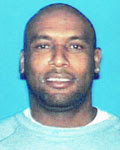Seifert's extradition has been welcomed by groups campaigning for Nazi war criminals to be brought to justice

Michael Seifert arrived in Rome from Canada where he had been fighting a battle against extradition. An Italian military tribunal convicted him in absentia in 2000 of 11 murders at a prison camp in the northern city of Bolzano. Seifert admits to having been a guard at the camp but denies being involved in atrocities. Seifert arrived shortly before dawn from Toronto on a military jet. The military prosecutor behind the case, Bartolomeo Constantini, described him as "a little wobbly" after leaving the plane. Mr Constantini says Seifert has a pacemaker but is generally healthy. Seifert was taken to a prison near Naples and was to undergo a medical examination. He may serve the sentence under house arrest because of his age.
The Verona-based military tribunal that convicted him heard testimony that Seifert committed acts of brutality while an SS guard. Seifert disguised his past while living in Canada Witnesses accused him of leaving a prisoner to starve to death, raping and killing a pregnant woman and gouging an inmate's eyes out. Towards the end of World War II, the Bolzano camp was used to house Jews, resistance fighters and German army deserters who were being transported further north.
Seifert was born in Ukraine and went on to work as a Nazi guard after the German occupation. After the war, he concealed his past and entered Canada in 1951.
In 2002, he was arrested after a request from Italy. His attempts to resist extradition reached a dead end in Canada's Supreme Court last month when it refused to hear his appeal. His lawyers argued that he had been convicted unfairly in Italy. They also accused the Canadian authorities of bias.
Seifert's extradition has been welcomed by groups campaigning for Nazi war criminals to be brought to justice. Avi Benlolo, of the Friends of Simon Wiesenthal Center for Holocaust Studies in Canada, said it was critical that Seifert faced justice in Italy. "It sets an example for other war criminals, not only Nazi war criminals, but war criminals related to Rwanda, Bosnia, Darfur or any other genocide," he said.

Comments
Post a Comment